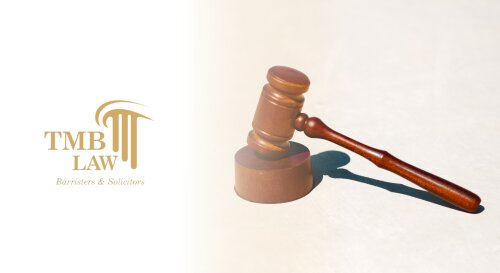Best Divorce & Separation Lawyers in Oshawa
Share your needs with us, get contacted by law firms.
Free. Takes 2 min.
Free Guide to Hiring a Family Lawyer
List of the best lawyers in Oshawa, Canada
About Divorce & Separation Law in Oshawa, Canada
Divorce and separation are complex areas of family law that deal with the dissolution of marriage and the consequent legal ramifications. In Oshawa, Canada, these proceedings are governed under the federal Divorce Act, provincial legislation, and family law rules. The process involves various matters including child custody, spousal support, division of property, and more. Understanding the local nuances and getting proper legal guidance is essential for navigating these challenging times effectively.
Why You May Need a Lawyer
Legal representation can be crucial for several reasons, particularly during emotionally charged circumstances like divorce and separation. Here’s why you might need a lawyer:
- Complexity of Law: Family law is intricate and having a lawyer ensures that your rights are protected and that you comply with all legal requirements.
- Emotional Support: Lawyers can offer objective advice and emotional support during stressful times.
- Negotiations: A skilled attorney can negotiate terms such as child custody, property division, and support payments effectively.
- Documentation: Legal professionals ensure that all paperwork is correctly filled and filed, avoiding potential delays and complications.
- Fair Outcome: They work to ensure a fair distribution of assets and liabilities, protecting your future financial interests.
Local Laws Overview
In Oshawa, Canada, divorces and separations are subject to specific laws and regulations:
- Divorce Act: This federal statute establishes the legal framework for divorce in Canada, including grounds for divorce and issues related to child support and spousal support.
- Ontario Family Law Act: This provincial law addresses property division, spousal support, and parental responsibilities.
- Matrimonial Home: Special rules apply to the matrimonial home, including the right to live in it, and its division upon separation.
- Child Custody and Support: Decisions are made based on the best interests of the child, considering factors such as a parent’s ability to care for the child and the emotional bond between parent and child.
- Spousal Support: Factors such as the length of the marriage, roles during the marriage, and financial needs are considered in deciding spousal support.
Frequently Asked Questions
1. What are the grounds for divorce in Oshawa, Canada?
The primary ground for divorce is "no-fault," which means the breakdown of the marriage. This can be proven by living apart for one year, adultery, or cruelty.
2. How is child custody determined?
Child custody is determined based on the best interests of the child. Factors include the child's relationship with each parent, the child’s wishes (considering age and maturity), and each parent's ability to care for the child.
3. What constitutes a "matrimonial home"?
A matrimonial home is any property that either spouse has an interest in and that is ordinarily occupied by the spouses at the time of separation. Special rules apply to its division.
4. Can I get spousal support?
Spousal support is determined based on factors such as the length of the marriage, roles during the marriage, and each spouse’s financial situation post-separation.
5. How is child support calculated?
Child support is usually calculated based on the paying parent's income and the federal/provincial Child Support Guidelines.
6. What happens to our property and debts after separation?
Property and debts are typically divided equally unless there is a prenuptial agreement or significant inequity would result from equal division.
7. How long does the divorce process take?
The divorce process can take several months to years, depending on the complexity of the case and whether issues such as child custody and asset division are contested.
8. Do we have to go to court?
Not necessarily. Many divorces are settled through negotiation, mediation, or collaborative law, which can be quicker and less costly than court proceedings.
9. Is separation the same as divorce?
No. Separation means living apart without legally ending the marriage. Divorce legally terminates the marriage and allows for remarriage.
10. Do I need a lawyer if we agree on everything?
Even if you and your spouse agree on all terms, a lawyer can ensure all legal requirements are met and help draft a solid separation agreement to avoid future disputes.
Additional Resources
Several organizations and resources can provide valuable information and support:
- Ontario Court of Justice
- Legal Aid Ontario
- Durham Community Legal Clinic
- Family Law Information Centre (FLIC)
- Public Legal Education and Information Service of Ontario (PLEIS)
Next Steps
If you need legal assistance with divorce and separation in Oshawa, follow these steps:
- Consult a Lawyer: Find a reputable family lawyer experienced in divorce and separation cases.
- Gather Documentation: Collect all necessary documents such as marriage certificates, financial statements, and any relevant correspondence.
- Mediation: Consider mediation to resolve disputes amicably.
- File Paperwork: Ensure all legal documents are properly filed with the court.
- Follow Legal Advice: Adhere to your lawyer’s recommendations and stay informed throughout the process.
Taking these steps will help ensure a smoother and more manageable experience during your divorce or separation in Oshawa, Canada.
Lawzana helps you find the best lawyers and law firms in Oshawa through a curated and pre-screened list of qualified legal professionals. Our platform offers rankings and detailed profiles of attorneys and law firms, allowing you to compare based on practice areas, including Divorce & Separation, experience, and client feedback.
Each profile includes a description of the firm's areas of practice, client reviews, team members and partners, year of establishment, spoken languages, office locations, contact information, social media presence, and any published articles or resources. Most firms on our platform speak English and are experienced in both local and international legal matters.
Get a quote from top-rated law firms in Oshawa, Canada — quickly, securely, and without unnecessary hassle.
Disclaimer:
The information provided on this page is for general informational purposes only and does not constitute legal advice. While we strive to ensure the accuracy and relevance of the content, legal information may change over time, and interpretations of the law can vary. You should always consult with a qualified legal professional for advice specific to your situation.
We disclaim all liability for actions taken or not taken based on the content of this page. If you believe any information is incorrect or outdated, please contact us, and we will review and update it where appropriate.












